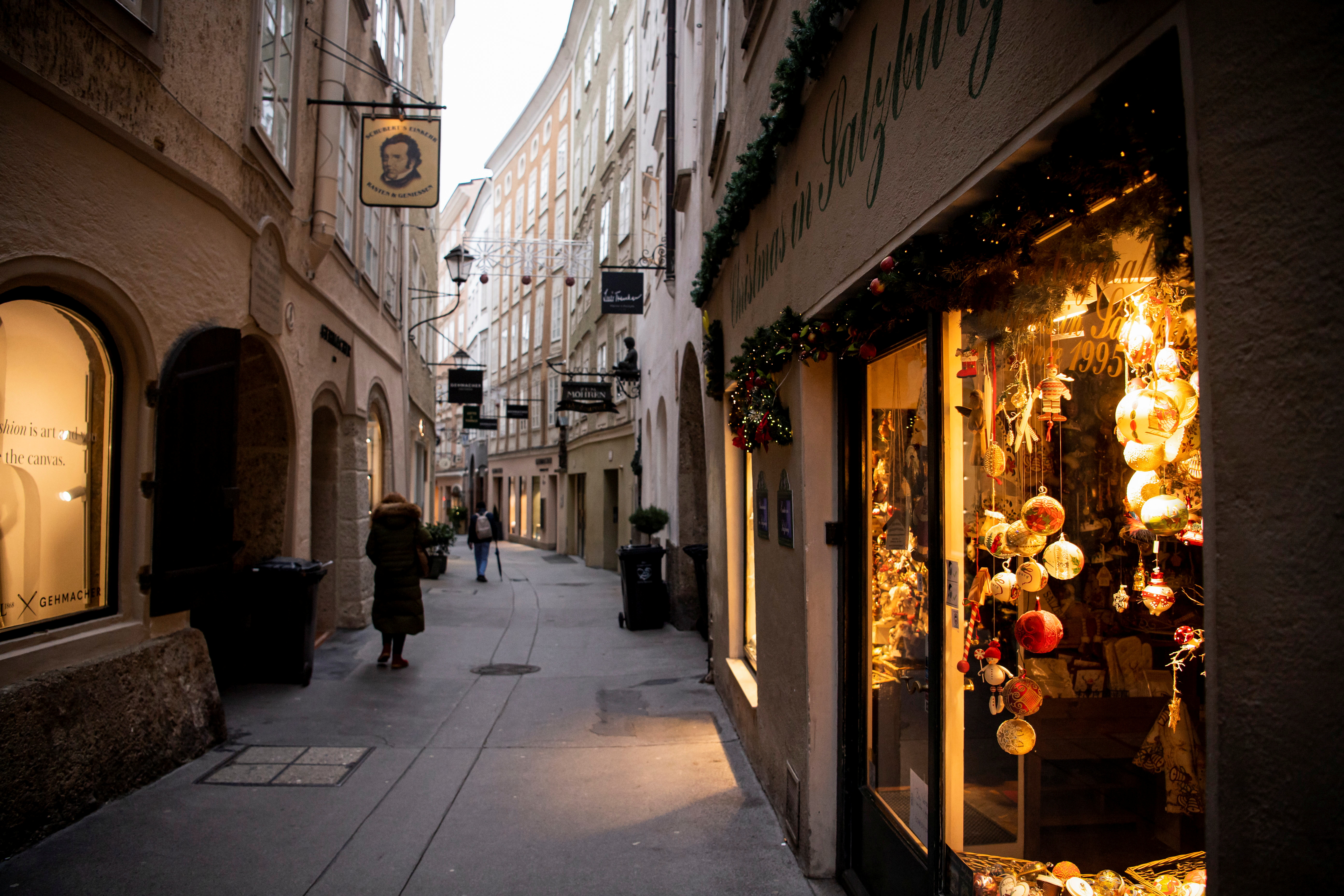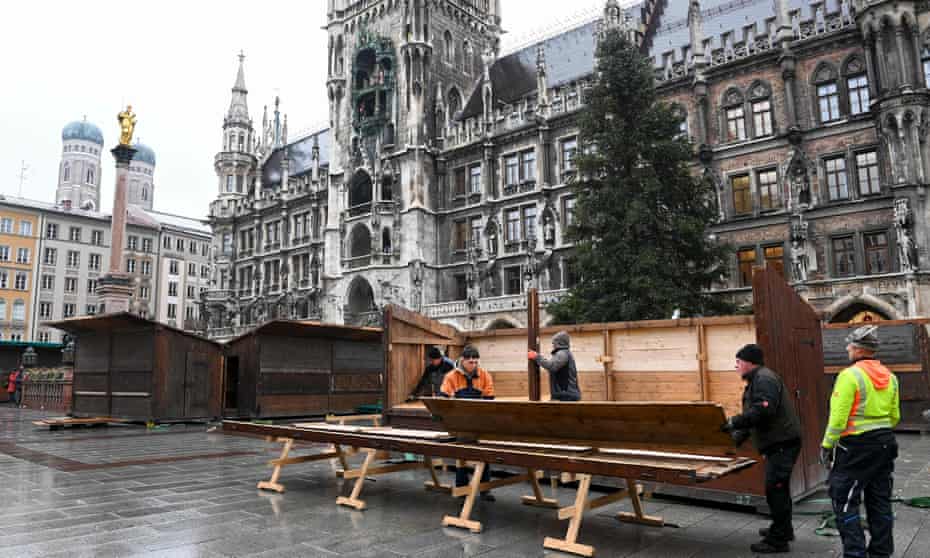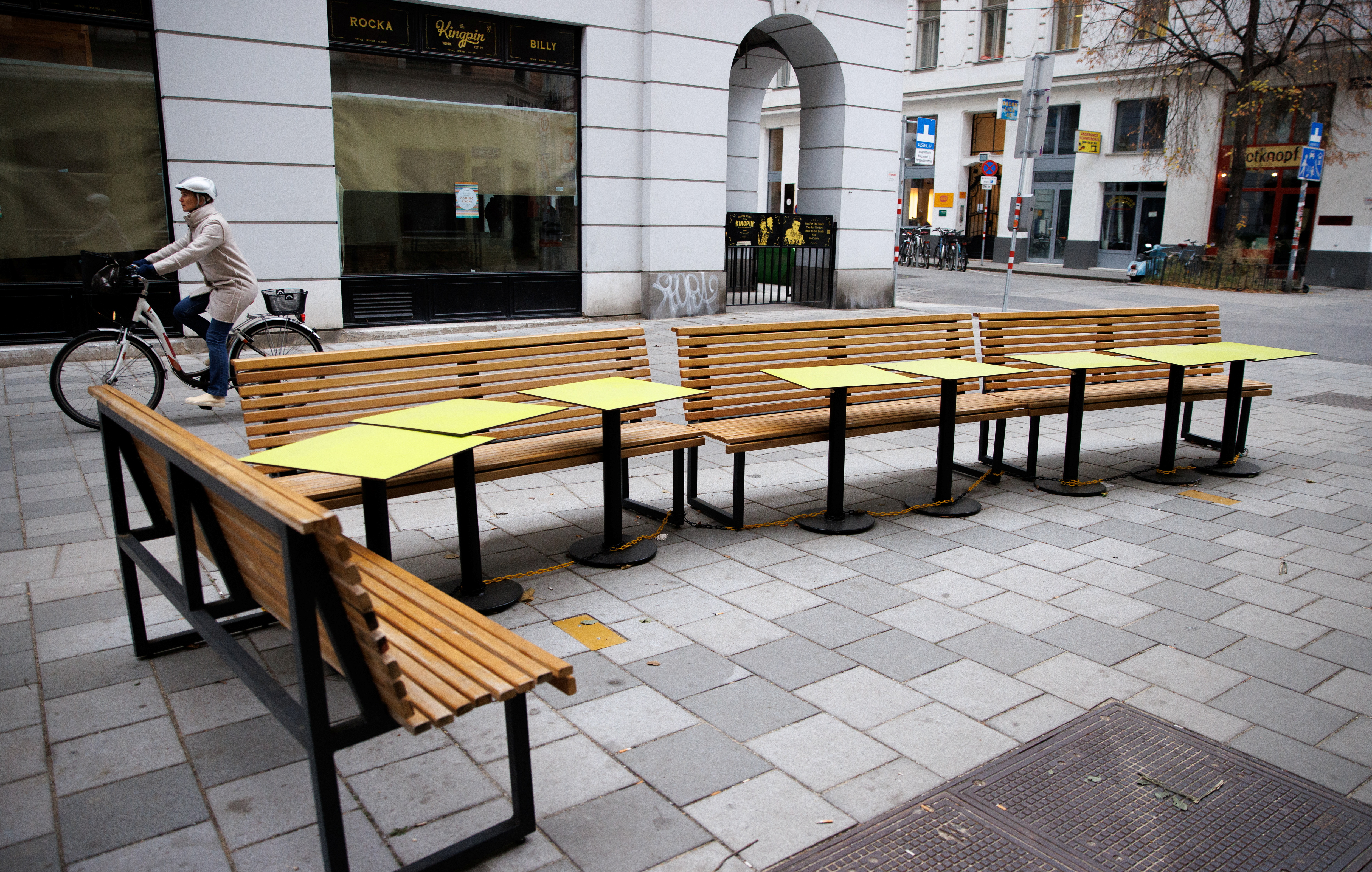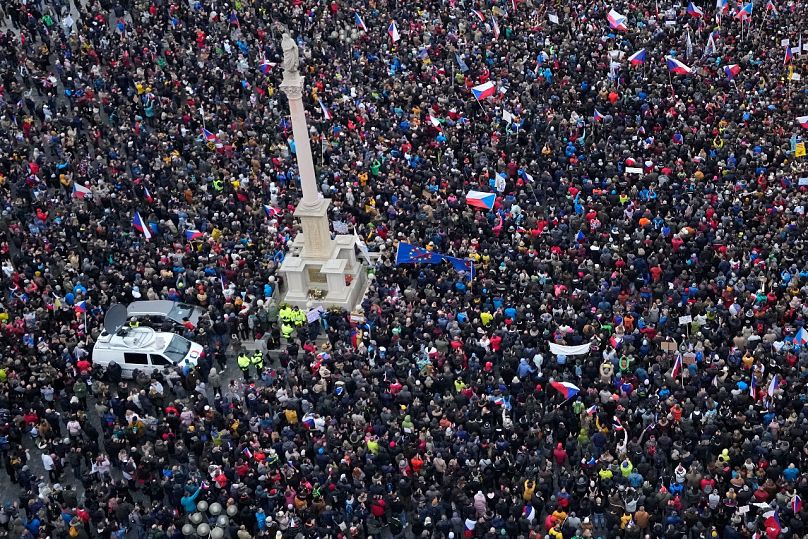Europe COVID Ridden, Locking Down
"It's like a luxury prison. It's definitely limited freedom and for me it's not great psychologically.""People were promised that if they got vaccinated they would be able to lead a normal life, but now that's not true."Sascha Jamkovyi, food sector entrepreneur, Vienna
 |
| Pedestrians walk at the city centre during the coronavirus disease (COVID-19) outbreak, as Austria's government imposed a general lockdown from Monday, in Salzburg, Austria, November 22, 2021. REUTERS/Lukas Barth |
Austria now is the first country in Western Europe reimposing lockdown since inoculations first began in the country. Non-essential shops, bars and cafes are now shuttered as caseloads surge, making the continent's leaders fearful of a second straight winter where the entire continent will be in deep freeze, so to speak. Tighter restrictions are also on the way in Germany in an effort to control a record-setting wave of infections.
Europe is now again the epicentre of the global pandemic that caused lockdowns first in March of 2020. The imposition of new restrictions and new vaccine mandates are expected to affect more countries struggling with rising caseloads, marking the approach of the second full year of spreading infections since the SARS-CoV-2 viruses that causes COVID-19 first emerged in China.
Confirming her position on the need to begin another closing of society, Chancellor Merkel informed leaders of her conservative CDU party: "We are in a highly dramatic situation. What is in place now is not sufficient" to dampen rising COVID case numbers. An urgent message from Jens Spahn the German health minister for people to be vaccinated, followed his confidential assurance of certainty that by winter's end everyone in the country would be "vaccinated, recovered or dead"; a message geared to spell out dire consequences.
 |
| Workers dismantle a booth in Munich, the capital of Bavaria, which, like Saxony, has cancelled its Christmas markets to help control Covid-19. Photograph: Christof Stache/AFP/Getty Images |
Austrians are being urged to work from home if at all possible; warning that restaurants, theatres and non-essential shops would be closed for a period of ten days. Citing a limited number of reasons for leaving home, such as attending school, going out to a workplace, shopping for essential products, or walking outdoors for exercise, Austrian authorities have made it clear that normal life habits must temporarily undergo change.
As of February 1st, in Austria, vaccinations will become compulsory, within a public where many remain skeptical of vaccinations, a suspicion of medical science encouraged by the far-right Freedom Party, third largest in parliament. Some 40,000 protesters were out on the streets in Vienna. In Brussels and across the Netherlands, protests turned violent over the weekend.
Unvaccinated people were banned from services, including going out to pubs and cafes and restaurants in the Czech Republic and in Slovakia. In Austria a third of the population remain unvaccinated, one of the highest unvaccinated rates in Western Europe, a situation that authorities blame for the COVID wave the country is currently struggling under.
 |
| Abandoned tables of a closed restaurant are seen in a street as the Austrian government imposed fourth national coronavirus disease (COVID-19) lockdown in Vienna, Austria, November 22, 2021. REUTERS/Lisi Niesner |
Despite the imposition of a lockdown on the unvaccinated last week, daily infections continue rising far above the previous peak, leading to a full lockdown this week. In Berlin and other parts of Germany Christmas markets have opened for the first time in two years, but in states bordering Austria and the Czech Republic with Germany's highest case loads, stricter rules prevail with the cancellation of Christmas markets and barring the unvaccinated from restaurants and bars, along with night-time curfews.
Vaccination rates are lower still in Eastern European countries where some of the highest death tolls per capita in the world have been experienced. In countries like Bulgaria and Romania, hospitals are overrun with serious cases of COVID-19, the surging caseloads leaving medical personnel in a quandary of hopelessness over vaccine hesitancy.
 |
Labels: Austria Lockdown, Europe, Fourth Wave, Germany, Protests

0 Comments:
Post a Comment
<< Home